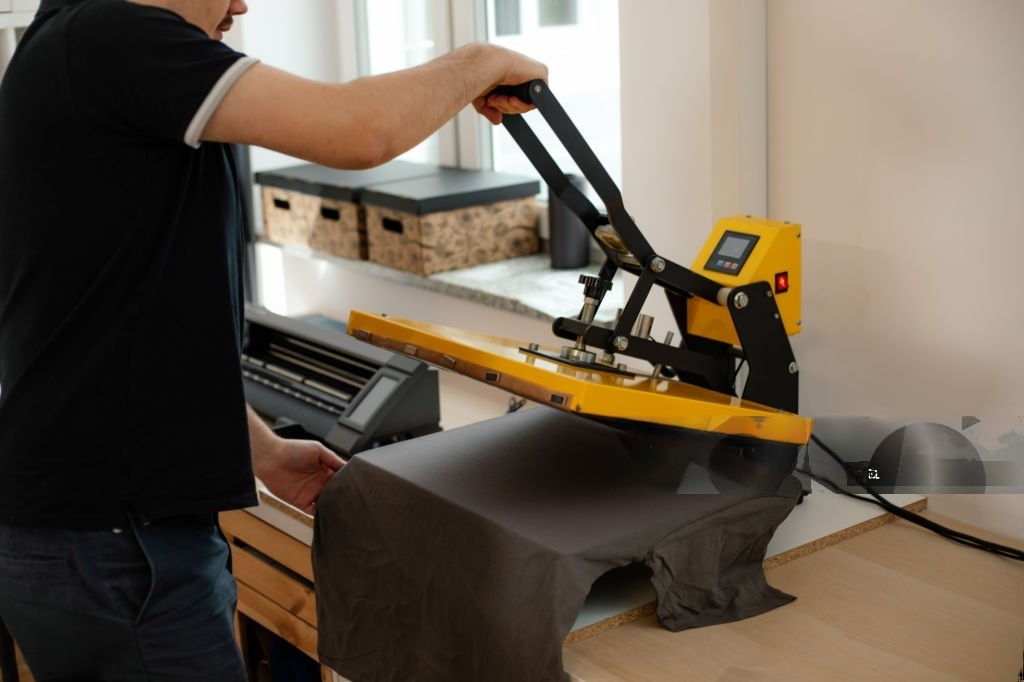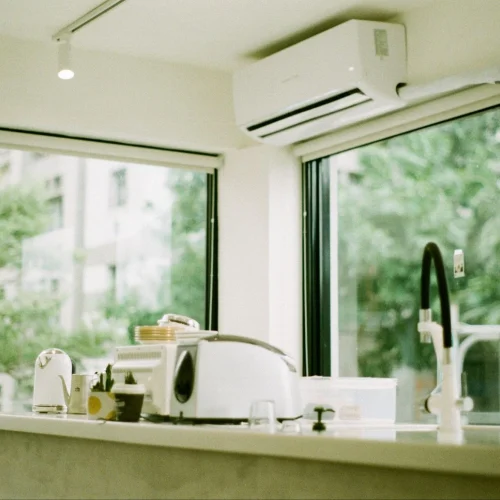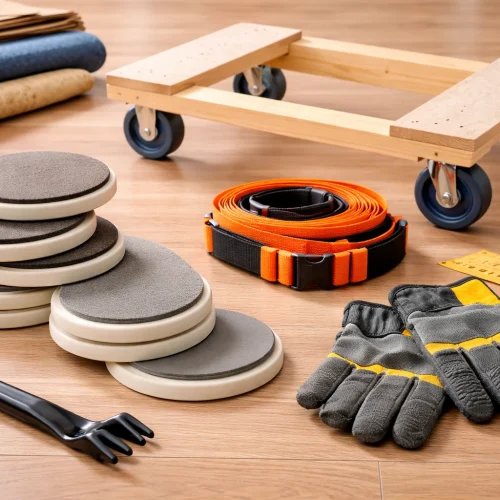
Owning a heat press gives small business owners the ability to create custom products quickly and affordably. It allows them to expand their services, keep costs low, and increase profit margins without relying on outside vendors. With one machine, they can produce professional-quality apparel and accessories that meet customer demand on their own schedule.
A heat press also makes it easier to test new ideas and offer personalized products in small or large quantities. This flexibility helps businesses grow by attracting new customers and keeping existing ones coming back. The ability to handle rush orders and deliver consistent results builds trust and sets them apart from competitors.
By bringing production in-house, small businesses gain more control over quality, pricing, and turnaround times. This independence opens the door to steady growth while keeping operations simple and manageable.
Key Takeaways
- Owning a heat press provides direct control over production and quality
- It creates opportunities to expand offerings and attract more customers
- The low startup cost makes it a practical tool for long-term growth
Key Advantages of Owning a Heat Press
A heat press machine gives small business owners direct control over production, cost, and quality. It makes it possible to create custom apparel and products quickly, while keeping expenses low and profit margins healthy.
Affordable Startup and Low Operating Costs
Heat press machines provide one of the most cost-effective ways to start a custom apparel business. Unlike screen printing or embroidery, which require thousands of dollars in equipment, a basic press often costs between $500 and $1500. Even a reliable 8 in 1 heat press machine can be found at an affordable price point, making it accessible to new entrepreneurs.
Operating costs remain low after the initial purchase. Electricity use is minimal, and maintenance usually involves simple parts like protective sheets or covers. Compared to direct-to-garment printers that require costly ink and frequent upkeep, a heat press runs with fewer ongoing expenses.
Because of the low overhead, business owners can begin generating profit quickly. Many recoup their investment within a few months by producing steady weekly orders. This makes the heat press a practical entry point for anyone looking to grow a custom apparel business without taking on heavy financial risk.
Versatile Product Customization
A heat press opens the door to a wide variety of products beyond just t-shirts. Owners can use heat transfer vinyl (HTV), sublimation prints, or DTF transfers to customize hoodies, jerseys, tote bags, hats, mugs, throw pillows, and even coasters. The same machine can handle different materials and shapes, especially when using a heat press machine 8 in 1 combo.
This flexibility allows businesses to expand product lines without buying separate equipment. A shop can offer seasonal items like beanies in winter, team jerseys in spring, and promotional tote bags year-round.
Customers also appreciate the ability to personalize products. Adding names, numbers, or custom graphics to apparel and accessories builds value and encourages repeat orders. With one machine, a business can shift easily between different product categories and customer needs.
Fast Turnaround and Scalability
Speed is one of the strongest advantages of heat pressing. Orders can be completed within minutes, making it possible to handle last-minute requests. This is especially valuable for events, sports teams, or corporate clients that need uniforms or merchandise quickly.
Unlike screen printing, which requires setup time and minimum orders, heat pressing allows single-piece production. A business can press one shirt for a customer or scale up to hundreds by simply adding more pressing time. As demand grows, owners can add another machine to double capacity without major changes to their workflow.
This ability to scale at a manageable pace reduces risk. Business owners can test new ideas or markets without committing to large inventories. Instead of stocking dozens of designs, they can keep blank garments and transfers on hand, pressing only what sells.
Enhanced Quality Control and Customer Satisfaction
Owning a heat press gives complete control over the production process. Each item can be checked immediately for alignment, pressure, and print quality before leaving the shop. This prevents costly mistakes and reduces the chance of dissatisfied customers.
DTF transfers and sublimation prints produce consistent, long-lasting results. Unlike vinyl that may peel or crack, these methods bond securely with fabric, keeping designs vibrant after many washes. By managing pressing time, temperature, and pressure, business owners can maintain professional standards across all products.
Customers also benefit from quick sample creation. A shop can produce a prototype shirt or bag in minutes, giving clients confidence in the final result. This hands-on quality control builds trust and encourages repeat business, since buyers know they will receive exactly what they expect.
Competitive Pricing and Higher Profit Margins
Because startup and operating costs are low, businesses can offer competitive pricing while still maintaining strong profit margins. For example, a blank t-shirt might cost $3–5, while a DTF transfer runs $2–6. With retail prices often at $20–30 per shirt, margins of 50% or more are common.
Bulk orders increase profitability even further. Transfer costs drop when ordered in larger sheets, while production time remains efficient. This allows businesses to price competitively against screen printers or embroiderers, who often face higher overhead and minimum order requirements.
The flexibility to handle both small custom jobs and large bulk orders also helps capture a wider customer base. By balancing affordability for clients with healthy margins, a heat press machine supports long-term growth and financial stability.
Key Advantages of Owning a Heat Press
A heat press machine gives small business owners the ability to create custom products quickly, affordably, and with consistent quality. It reduces startup costs, expands product options, and allows better control over pricing and customer service.
Affordable Startup and Low Operating Costs
A heat press machine is one of the most cost-effective tools for starting a custom apparel business. Entry-level machines often range from a few hundred to around a thousand dollars, which is far less than equipment for screen printing or direct-to-garment printing.
Operating costs stay low because the machine mainly requires electricity and occasional replacement of protective covers. Unlike other methods that rely on large amounts of ink, screens, or chemicals, heat pressing uses transfers and blank products, which are easier to manage and store.
For example, a t-shirt blank may cost $3–$5, while a DTF transfer or heat transfer vinyl design can cost $2–$6. With finished products selling for $20 or more, the profit margin remains strong. This low barrier to entry makes it possible for small shops or home-based businesses to start generating income quickly.
Versatile Product Customization
Heat press machines are not limited to t-shirts. They can apply designs to hoodies, jerseys, tote bags, hats, mugs, coasters, and even throw pillows. This versatility allows businesses to offer a wide range of products without investing in different types of equipment.
Using heat transfer vinyl (HTV), sublimation prints, or DTF transfers, owners can create both simple and detailed designs. Adding names, numbers, or logos becomes straightforward, which is especially useful for teams, schools, and small organizations.
The ability to combine decoration methods increases creative options. For example, a jersey can feature a DTF logo on the front with vinyl numbers on the back. This flexibility helps businesses attract more customers by meeting different needs with one machine.
Fast Turnaround and Scalability
Heat pressing makes it possible to complete orders quickly. Once transfers and blanks are ready, pressing a shirt or bag takes only a few minutes. This speed allows businesses to handle last-minute or small-batch orders that other printing methods often reject.
There are no minimum order requirements. A single custom shirt can be produced just as easily as a batch of 50. Small businesses can scale production by adding more pressing time or purchasing additional machines as demand grows.
This flexibility is especially useful for seasonal items or event-based products. A shop can press holiday designs, sports team gear, or promotional items in small runs without the risk of leftover inventory. The ability to adjust production levels keeps costs under control while meeting customer deadlines.
Enhanced Quality Control and Customer Satisfaction
By bringing production in-house, business owners maintain direct control over every product. Heat press machines apply consistent temperature, pressure, and time, which helps produce durable, professional-looking designs.
DTF transfers and sublimation prints bond well to fabrics, creating long-lasting prints that resist peeling or cracking. With proper technique, the finished items can withstand regular washing and wear, which improves customer satisfaction.
Quality checks can be done on each piece before delivery. If alignment or color issues appear, they can be corrected immediately. This level of oversight helps prevent mistakes and builds trust with customers who expect accurate, well-made products.
Competitive Pricing and Higher Profit Margins
Owning a heat press allows small businesses to control costs and set pricing that works for their market. Without relying on outside vendors, there are no extra markups or rush fees to cut into profits.
Because transfers and blank products are affordable, businesses can maintain healthy margins even at competitive price points. For instance, selling a $25 custom hoodie that costs under $10 to produce leaves room for strong profits while still offering value to the customer.
Bulk orders often reduce transfer costs further, which increases margins on larger jobs. At the same time, single-piece orders remain profitable since the setup process is quick and inexpensive. This balance between low production costs and flexible pricing creates steady revenue opportunities for small business owners.
Growth Opportunities and Business Expansion
A heat press gives small business owners the chance to grow beyond basic t-shirt printing. It makes it possible to add new products, try fresh ideas with low risk, and keep more control over production without depending on outside vendors.
Expanding Product Lines Beyond Apparel
A heat press transfer machine is not limited to shirts and hoodies. Owners can use heat press designs on tote bags, hats, beanies, and accessories. Many also branch into home items like throw pillows, coasters, and mugs.
This variety creates new sales channels. For example, a custom apparel business can offer matching bags with team uniforms or branded mugs with company shirts. Each product type appeals to different customers and occasions, giving the shop more ways to earn revenue.
Unlike screen printing or embroidery, which often require extra equipment for new materials, the same press handles most of these items. This makes it easier to expand without large investments. By introducing multiple product categories, businesses can serve schools, sports teams, event organizers, and gift buyers with a wide range of custom goods.
Flexibility to Test New Business Ideas
A heat press business can test new designs or products with very little upfront cost. Owners can order small batches of transfers and press them onto blank items like bags, mugs, or t-shirts. If the idea sells, they can scale up. If not, the loss is minimal.
This flexibility is important when trying seasonal designs or limited collections. For example, a shop might release holiday-themed tote bags or graduation beanies. If customers respond well, the business can quickly expand production.
Screen printing companies often require high minimums, which makes testing harder. With a heat press, even a single piece can be produced and sold. This allows business owners to experiment freely, gather feedback, and adjust their heat press business ideas without being locked into large orders or heavy costs.
Reducing Reliance on External Vendors
Many small shops start by outsourcing to screen printing or embroidery businesses. While this helps in the beginning, it often leads to higher costs, longer wait times, and less control over quality. A heat press transfer machine brings production in-house.
By pressing their own designs, owners avoid vendor markups and scheduling delays. They can accept smaller orders without worrying about minimum requirements, which attracts more customers who only want a few items.
This independence also improves customer service. If a client needs rush orders for team jerseys or company polos, the business can deliver faster. Controlling production directly also means every shirt, bag, or accessory leaves the shop meeting the owner’s standards, not someone else’s.
Conclusion
A heat press gives small business owners more control over production, cost, and product variety. It allows them to create professional-quality items without the high expense of other equipment.
The machine’s flexibility makes it suitable for both small and large orders, helping businesses meet customer needs quickly. It also supports testing new ideas with little financial risk.
By combining low startup costs, simple operation, and the ability to expand product offerings, a heat press becomes a practical tool for steady business growth.













